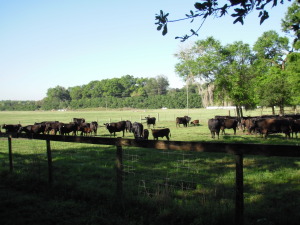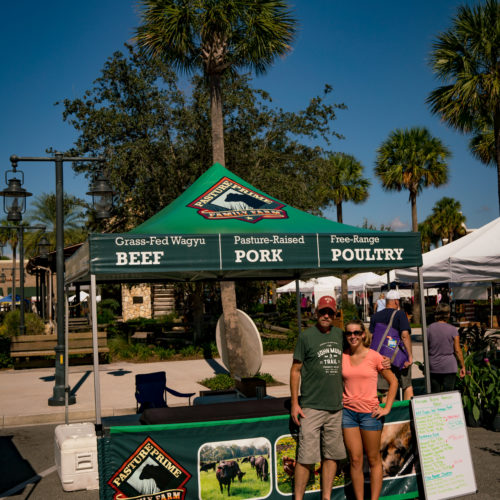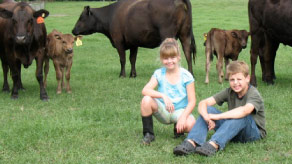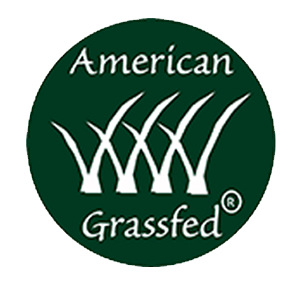
We recently came across this TED talk, called “How to green the world’s deserts and reverse climate change,” which was given by noted ecologist Allan Savory. (If you’re unfamiliar with TED talks, they are 20 – 30 minute videos by experts in certain fields, and they range on a variety of topics. Click the link and see what we mean!)
Allan Savory has dedicated his life to studying “desertification” – land turning to bare, unfertile ground. Currently, an estimated two-thirds of the planet has undergone desertification, and the effects are more disastrous on the climate than fossil fuels.
When land undergoes desertification, it can no longer absorb water, grasses cease growing (or grow sparsely), water can no longer be captured — causing massive run-off — and most gravely, the soil becomes hardened and is no longer able to capture carbon or produce fertile grasses.
For years, scientists bought into the theory that desertification was caused by overgrazing and animals – Allan Savory was no exception. He began studying national parks in the U.S. and found that where there were no animals, however, the desertification was farther advanced.
Studying historical grazing patterns
Savory and his team realized that throughout history, animals would move in vast migrations, in large herds. As they passed through areas, they would graze, churn the soil, fertilize it, and move on. The net effect is that the grasses would re-grow and the soil would rebuild, deeper and deeper, holding water, capturing carbon, and keep the ground temperature more stable (and thus the surrounding air).
In modern cultures, overgrazing is caused from keeping either too few or too many animals on land – without rotation, thus preventing the natural re-growth of the grasses, which aids in soil building. Modern “solutions” such as burning, to keep shrubs down, have only served to advance desertification. In fact, burning just one acre causes the same amount of pollution as 6,000 cars. Clearly this is not an environmentally friendly solution.
By studying the natural migration patterns, Savory and his team came to a logical conclusion: Mimic massive migrations through concentrated pasture rotation.
In areas where this approach has been implemented, the results are striking: where there once was essentially a desert is re-built into healthy grasses, rain capture, and deep fertile soil. Moreover, the communities that live in the vicinity are able to support themselves entirely on the animals and soil, rather than rely on food aid. A simple solution, mimicking nature, which requires no technology.
It may sound so simple, but proper soil management can have drastic effects
When one considers that over two-thirds of the planet is undergoing massive desertification, it becomes apparent that grazing practices are actually one of the most fundamental things we can do to manage climate change, carbon and water capture, and help communities become self-sufficient with their food supply. It truly is no small matter. When land is destroyed and people are displaced, it causes violence, hunger, and the breakdown of communities. Savory and his group are working on holistic management practices throughout Africa, with stunning results.
In the U.S. a similar movement has been taking place (or, rather a return to how the buffalo naturally managed the plains and much of the Western states). Joel Salatin, farmer at Polyface Farms, is one prominent proponent of soil building and intensive rotation for soil re-building, using natural cycles, and most importantly, keeping cows on the grass, instead of sending them off to feedlots to be finished.
Here at Pasture Prime Family Farm, we too abide by intensive soil management and grazing practices. The results on our sustainable farm speak for itself: healthy soil, vibrant grasses, well-nourished animals, and an environment that supports polyculture – multiple species on the land. We are proud to raise Wagyu cattle, heritage pigs, and turkeys and chickens – all on the same farm, and in a manner where the different species complement each other.
We encourage you to support farms such as ours that are contributing to the health of the soil, the community, and the planet. Help us spread the word!
Tags: soil management, sustainable farming







